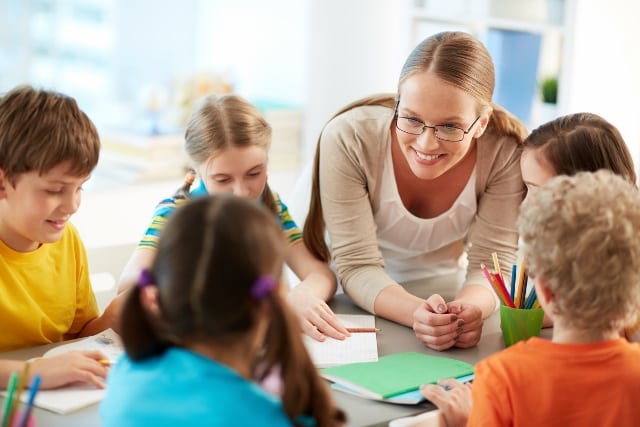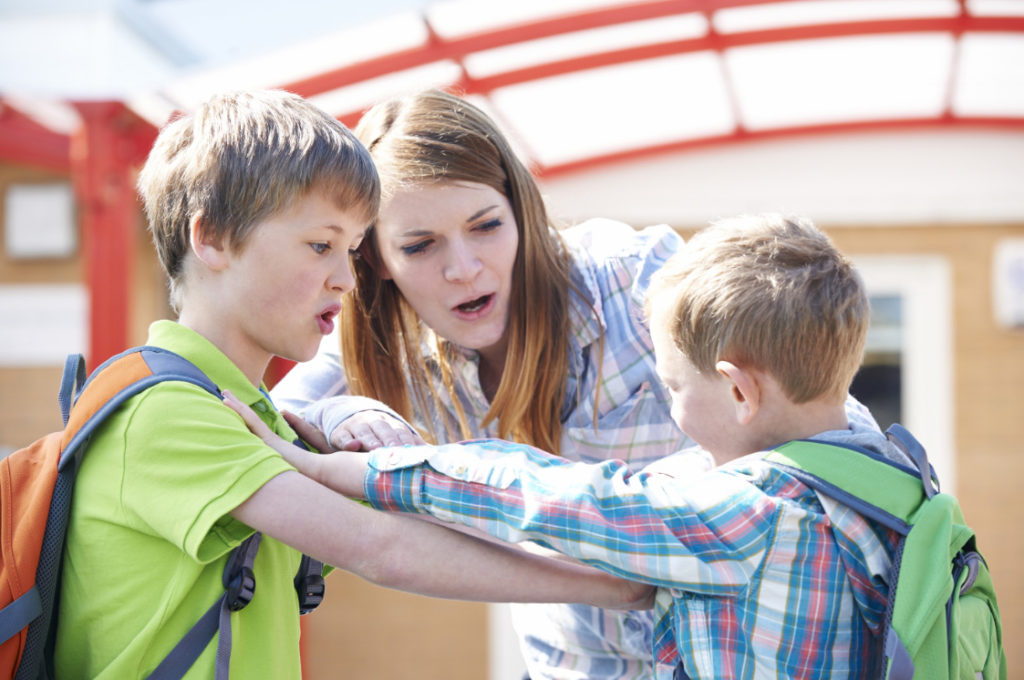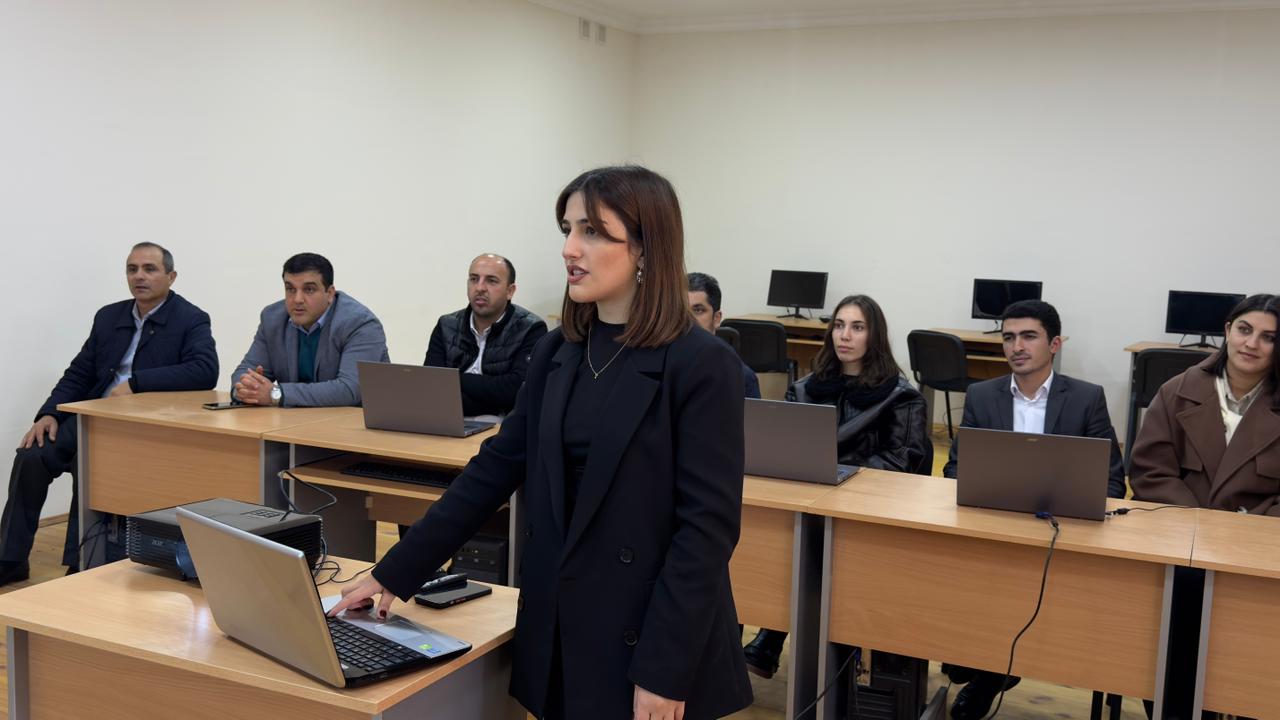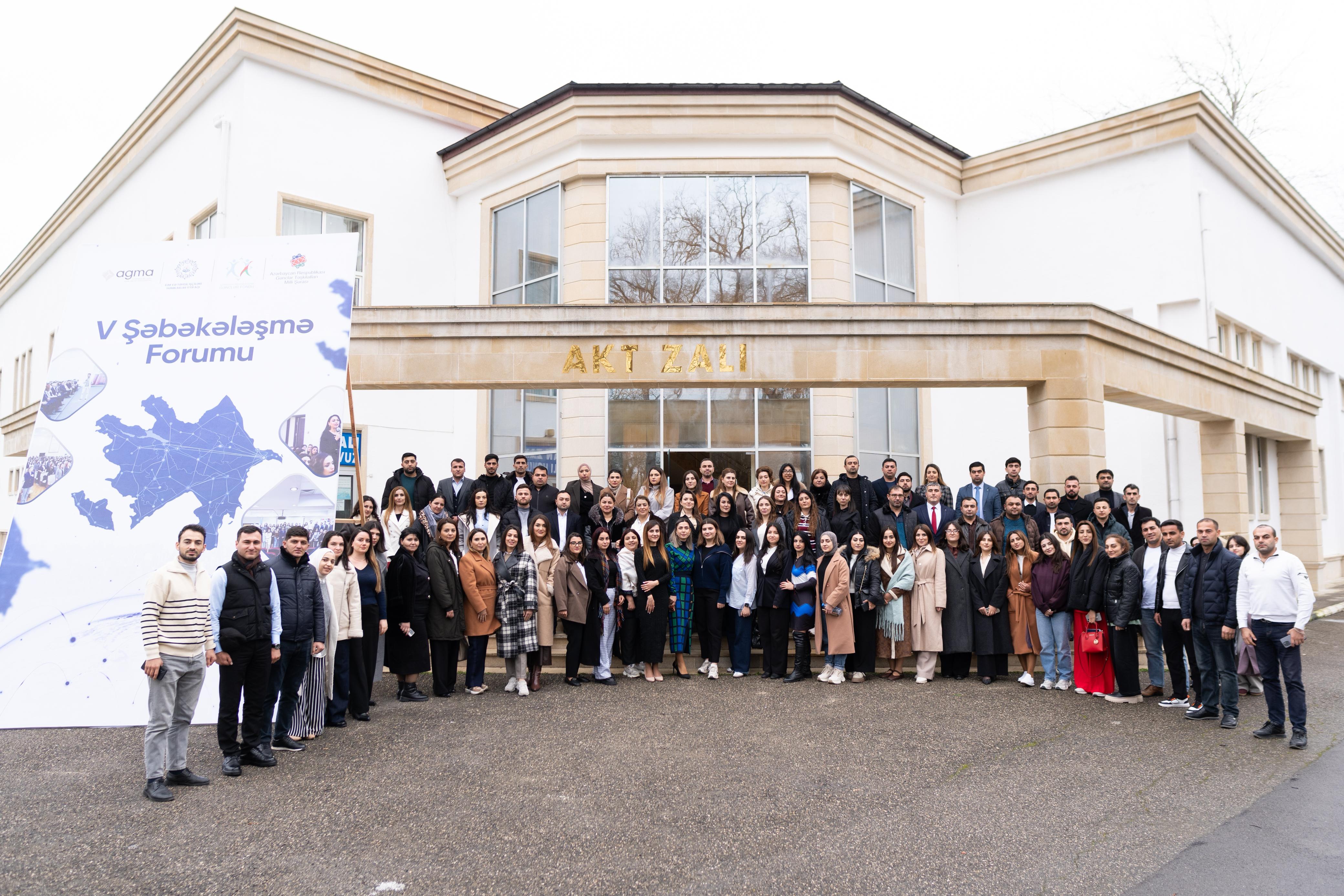
MINISTRY OF SCIENCE AND EDUCATION REPUBLIC OF AZERBAIJAN
AZERBAIJAN YOUNG TEACHER ASSOCIATION
Author: Mustafayeva Aynura
Baku Engineering University, Faculty of Education, Majored in Teaching Chemistry
The impact of emotional intelligence on pupils’ achievement
Project manager: Rufat Asadzade
Supervisor: Aminat Diganayeva
Abstract
The article is devoted to the relationship between emotional intelligence and achievement of school children. A survey was conducted on the basis of 20 questions using the survey method. 93 students participated in the survey. 77.5 % of them are girls and 22.5 % are boys. Features of emotional intelligence such as self-management, self-awareness, social- awareness, relationship management were taken into account in the survey.
Key Words: emotional intelligence, achievement, success
Introduction
This topic has not been researched in Azerbaijan yet. Looking at studies in other countries, it can be seen that students' success increases as they improve their emotional intelligence. So I wanted to research this topic. I think it will be very important in Azerbaijan. If we learn what emotional intelligence is and how to improve it, we can apply it to our students and increase their success.
The strategies used to mold students for a bright future describe education as one of the first steps towards the routes of knowledge and a determining factor in children's life. Daniel Goleman (1999) asserts that in order to recognize the influence that emotions have on our thoughts, one must have a basic understanding of how the brain functions. The development of future generations is influenced by the broad field of education.Emotional intelligence is one of the many aspects that influence this process. It is an essential component that directly influences one's self-awareness and other interpersonal relationships. Additionally, everything is mirrored in the students' academic performance. As usual, emphasis is placed on the emotional aspects, notably on the emotional intelligence that works in tandem with today's educational system for students. The term "Emotional Intelligence" (EI) refers to the capacity to process information acquired throughout the course of the day, emotions felt, and the comprehension of the information as a guide for action and thinking. Students' ability to control their conduct, adapt, and form relationships with their classmates is influenced by their emotional intelligence. According to Goleman (1999), emotional intelligence refers to a person's ability to notice and comprehend their own feelings as well as those of others, as well as to regulate and control their emotional conduct. In general, intelligence refers to one's potential for learning and acceptable behavior. The academic and scientific communities have recently begun to pay attention to emotional intelligence (Mortan et al., 2014). Due to its favorable effects on the teaching process, emotional intelligence has an effect on academic knowledge. This factor has to do with social contact and the teacher-student relationship (Chew et al., 2013).One of those subjects that has attracted a lot of attention in research and studies, as well as recognition in various situations, is emotional intelligence. Data demonstrate the significance of emotional intelligence, particularly in schools.
According to Mayer and Salovey (1995), emotional intelligence is the capacity to recognize emotions, access and produce emotions to support thought, comprehend emotions and emotional knowledge, and control emotions introspectively to support both emotional and intellectual development. A crucial component of maintaining high achievement, retention, and positive behavior as well as enhancing life success is emotional intelligence. Schools and educational institutions are increasingly focusing on emotional intelligence in an effort to find a systematic solution to enhance both academic and social outcomes. According to McClelland, Atkinson, Clark, and Lowell (1953) and Murray (1938), achievement motivation is the drive to complete tasks successfully and prevent failure. Meaning that people behave in a way that is focused on either achieving success or avoiding failure. Later, Ames & Archer (1987) proposed that the performance goal and the mastery goal were two goal-orientations that affected AM. While the mastery aim concentrated on developing competence, the performance goal concentrated on competence display. Both orientations had different effects; for instance, those with performance goals withdrew when they failed, whereas those with mastery goals persisted (Elliot and Church, 1997).
This study aims to look into the relationship between emotional intelligence and achievement motivation among school students and to compare the significant differences in the level of emotional intelligence and achievement motivation among school students across their age,their gender.
Objectives of the Study
The study aimed to correlate emotional quotient and academic achievement of different grade school students. The study would like to know if there is a significant difference between the emotional intelligence of the respondents when group based on the profile variable and finally to find out if there is a correlation between emotional quotient and academic performance of the pupils of school.
Materials and Methods
The researcher used the survey method to determine the needed information about emotional intelligence and academic performance of pupils of school. This was used to determine if there is any relationship between emotional intelligence and academic achievement of pupils of school. The questionnaires were distributed to 93 pupils. 77.5 %, in other words 69 of them are girls, 22.5 %, in other words 20 of them are boys. This is the survey:
1) What grade are you in?
2) Your gender
3) Your annual average point
4) Telling people how I feel ....
○ Easy
○ Hard
5) To talk about my deep feelings ........
○ Easy
○ Hard
6)
○ I am good at understanding other people's feelings
○I can't understand other people's feelings
7) When I get angry ......
○ I can stay calm, I control my anger
○ I can't stay calm, I can't control my nerves
8) I get angry very quickly.
○ Yes
○ No
9) Difficult questions ...................
○ I use different methods to find answers.
○ When I don't find an answer, I don't look for another method.
10) Understanding new things is for me...
○ Easy
○ Hard
11) I try to stay with it until I solve the problem.
○ Yes
○ No
12) I solve problems.
○ Sometimes I can solve it.
○ I want help from others.
○ Most of the time I solve it myself.
13) I .................... myself.
○ feel happy
○ don't feel happy
14) I know my strengths and weaknesses.
○ Yes
○ No
15) You recognize your emotions and how they affect your thoughts and behaviors.
○ Yes
○ No
16) I trust myself.
○ Yes
○ No
17) I can empathize.
○ Yes
○ No
18) I can communicate .......... with others.
○ easily
○ hardly
○ don’t communicate
19)
○ I can motivate myself.
○ Others motivate me.
20) Which form of memory do you think is better?
○ Eye memory
○ Ear memory
○ Other
Result and Discussion
| Grade | n | %
| 5 | 7 | 7.8 %
| 7 | 6 | 6.1 %
| 8 | 9 | 10 %
| 9 | 24 | 26.7 %
| 10 | 35 | 38.9 %
| 11 | 11 | 7.8 %
Fig 1. Annual average points of pupils
| 1. Telling people how I feel.... | Easy- 41.6 % | Hard- 52.8 %
| 2. To talk about my deep feelings.... | Easily- 49.4 % | Hardly- 49.4 %
| 3. Understanding other people's feelings. | Good understanding- 86.5 % | Bad understanding- 7.9 %
| 4. When I get angry | I can stay calm, I control my anger- 37.1 % | I can't stay calm, I can't control my nerves- 59.6 %
| 5. I get angry very quickly | Yes- 62.1 % | No- 31 %
| 6. When I am faced with difficult questions | I use different methods to find answers- 69.7 % | I don't find an answer, I don't look for another method- 29.2 %
| 7. Understanding new things for me | Easy- 76.4 % | Hard- 18 %
| 8. I try to stay with it until I solve the problem | Yes- 74.2 % | No- 24.7 %
| 9. Sometimes I can solve problems- 33.7 % | I want help from others- 9 % | Most of the time I solve it myself- 55.1 %
| 10. I am happy. | Yes- 69.3 % | No- 17 %
| 11. I know my strengths and weaknesses. | Yes- 95.5 % | No- 4.5 %
| 12. You recognize your emotions and how they affect your thoughts and behaviors. | Yes- 88.5 % | No- 11.5 %
| 13. I trust myself. | Yes- 89.9 % | No- 7.9 %
| 14. I can empathize. | Yes- 82.7 % | No- 16 %
| 15. I can communicate easily with others- 76.1 % | I can communicate hardly with others- 15.9 % | I can’t communicate with others- 8 %
| 16. I can motivate myself- 81.1 % | Others motivate me- 17.9 % | I am not motivated- 1 %
| 17. Eye memory better- 60.7 % | Ear memory better- 27 % | Both of them better- 12.2 %
Table 1. Answers to survey questions
Self-management- You have the capacity to restrain impulsive thoughts, feelings, and actions, to regulate your emotions in healthy ways, to take the initiative, to keep your word, and to adjust to changing circumstances.
Questions: 4, 7, 8, 10, 13, 16.
Self-awareness- You are aware of your feelings and how they influence your actions and thinking. You are confident in yourself and are aware of your talents and flaws.
Questions: 5, 6, 9, 11, 12, 17.
Social awareness- You are socially aware and empathic. You are able to discern emotional indicators, comprehend the needs and worries of others, feel at ease in social situations, and comprehend the power relationships in a team or organization.
Questions: 2, 3, 14.
Relationship management- You have the ability to create and sustain positive relationships, communicate effectively, motivate and influence people, collaborate effectively with others, and handle conflict.
Questions: 1, 15.
Some students studying in the 10th grade with high annual grades have strong relationship management and social awareness, but self-management and self-awareness are weaker. But some students studying in 10th grade with high annual grades have strong emotional intelligence. Another surprising nuance from the survey was that the 9th grade student had a high annual grade, but did not feel confident and happy. Boy’s relation management and social-awareness are strong than girls.
Conclusion
According to the study, emotional intelligence is crucial for development, success, and accomplishments in every area of life. Due to their impact on everyone's achievement in life, this calls for additional study, research, and teaching of younger generations on understanding one's emotions. Due to the fact that sixth through eighth grade students are going through a transitional stage in their lives where the emotional component is crucial, this study set out to examine the impact of emotional intelligence on academic achievement in these students. Our study found a significant relationship between these two factors, demonstrating that emotional intelligence has a positive impact on academic achievement in students. If the education process is believed to be a platform for the formation of character and a work-ready landscape, EI should be integrated as part of an academic program. Students need to feel their emotions to enhance a positive outlook on the situation they are experiencing. When emotions are kept in check, students can know their minds, motives, reasons, and act reasonably.
Brief Biography of the Author:
Author Aynura Mustafayeva was born in Baku in 2001. In 2018, he was admitted to the faculty of chemistry teaching of Baku Engineering University. She graduated from the university in 2023. Some of her articles are related to chemistry. Currently, she is doing research on teacher development.
References
1. Emotional Intelligence and Achievement Motivation among College Students Shibila Sabir, Sannet Thomas. Volume 4 Issue 6, September-October 2020.
2. Academic achievement in high school: does emotional intelligence matter? James D.A. Parker a, Ronald E. Creque Sr. b, David L. Barnhart b, Jan Irons Harris c, Sarah A. Majeski a, Laura M. Wood a, Barbara J. Bond d, Marjorie J. Hogan. Volume 37, Issue 7, November 2004, Pages 1321-1330.
3. The Influence of Emotional Intelligence on Pupils’ Achievements at School. Dorina Xhani, Brunilda Hoxhaj, Artenida Zykaj, Elsida Sinaj, May 2023.
4. Effects of Emotional Intelligence toLearning Achievement inElementary School1Acoci, 1Suardin, 1Muhammad Yusnan, 2Saada Omar, 3Suhairee Berngacha.
5. Pupils’ trait emotional intelligence and life satisfaction on academic achievement in the new normal. Joshua Padilla Reyes and Ayrel Gem Crisostomo Dionisio. 02 April 2023.
6. EFFECT OF ACADEMIC ACHIEVEMENT OF UNDER-GRADUATE STUDENTS ON THEIR EMOTIONAL INTELLIGENCE. Hemakand N Wakde. October 2021.
7. Emotional Intelligence and AcademicAchievements of Elementary Pupils inMathematics of Batangas State UniversityARASOF Nasugbu, Batangas:Input to a Proposed Development Plan. Lorna V. Dacillo. 2017 4th International Research Conference on Higher Education, Volume 2018.
8. EMOTIONAL INTELLIGENCE AND ACADEMIC ACHIEVEMENT AMONG MALAYSIAN SECONDARY STUDENTS. Maria Chong Abdullah. Vol. 19, 2004.
9. Emotional Intelligence in the Context of Learning and Achievement. Thomas Goet, Anne C Frenzel, Reinhard Pekrun, Nathan Hall. 2005, S. 233-253.
10. EXCELLENT ACADEMIC ACHIEVEMENT:DO INTELLECTUAL HUMILITY AND EMOTIONAL INTELLIGENCE MATTER? Aurelius Ratu, Ni Gusti Made Rai, Eka Dian Savitri, Cakrawala Pendidikan. Vol. 40, No. 2, June 2021.
11. EMOTIONAL INTELLIGENCE. Hakan Yöney. Year 2001, Volume: 14 Issue: 1, 47 - 52, 03.12.2016.
12. Investigation of the Level of Secondary School Students’ Emotional Intelligence in Terms of Different Variables. Esra UÇAK, Leyla YILDIRIM. Year 2020, Volume: 7 Issue: 1, 182 - 207, 01.05.2020.
13. Teacher Effectiveness in Relation to Type of Institution, Emotional Intelligence and Teaching Experience. Amit KAUTS, Vijay Kumar CHECHİ. Year 2014, Volume: 4 Issue: 2, 63 - 81, 01.12.2014.
15. Duygusal Zekanın Alana Özgü Yaratıcılığı Yordama Düzeyi: Üstün Zekalı Öğrenciler Üzerinde Bir İnceleme. Feyzullah Şahin, Esin Özer, Mehmet Engin Deniz.
16. Duygusal Zekâ Özelliği Ölçeği–Kısa Formu: Geçerlik ve Güvenirlik Çalışması. M. Engin Deniz, Esin Özer, Erkan Işık.
17. Emotion and Education: Reflecting on the Emotional Experience Emotion and Education. Luigina MORTARİ. Year 2015, Volume: 4 Issue: 4, 157 - 176, 15.10.2015.
18. The Effects of Caricature-based Applications on the Preschool Children’s Emotional Intelligence. İnci KOCAMAN GELİR Sevda KOÇ AKRAN. Year 2021, Issue: 26, 198 - 230, 30.04.2021.
19. Association between Emotional Variables and School Achievement. Christoph RANDLER. Year 2009, Volume: 2 Issue: 2, 01.12.2008.
20. Ten years emotional intelligence scale (TYEIS): Its development, validity and reliability. Kerem COŞKUN Yücel ÖKSÜZ H. Bayram YILMAZ. Year 2017, Volume: 4 Issue: 2, 122 - 133, 01.07.2017.
21. Determination of the Relationship Between Emotional Intelligence Level and Decision Making Strategies in Gifted Students. Mustafa KURTOĞLU. Year 2018, Volume: 6 Issue: 1, 1 - 16, 30.03.2018.
22. The Effect of Neurolinguistic Programming on Academic Achievement, Emotional Intelligence, and Critical Thinking of EFL Learners. Xiuyun Zhang, Nikoo Davarpanah and Siros Izadpanah. 18 January 2023.
23. A Study On Emotional Intelligence And Academic Achievement In Malaysia. Cyndra Robert Budull, Nur Khairansa Abu Talip, Noreriani Sabturani, Theresa Ahing, M S Abu Talip. October 2020.











.jpg)














.jpeg)